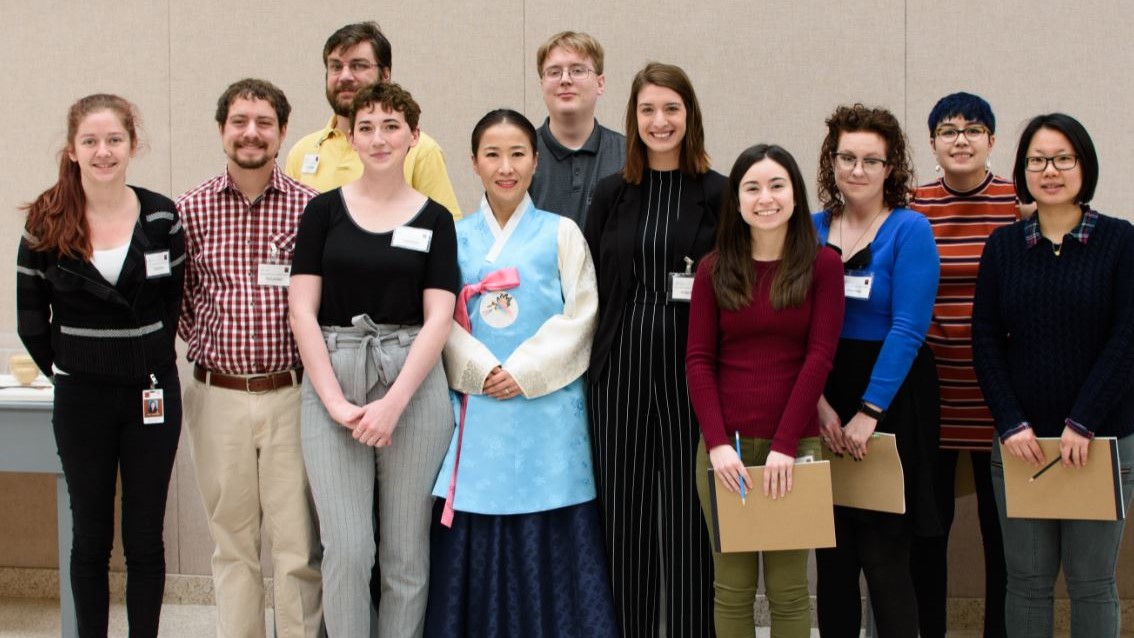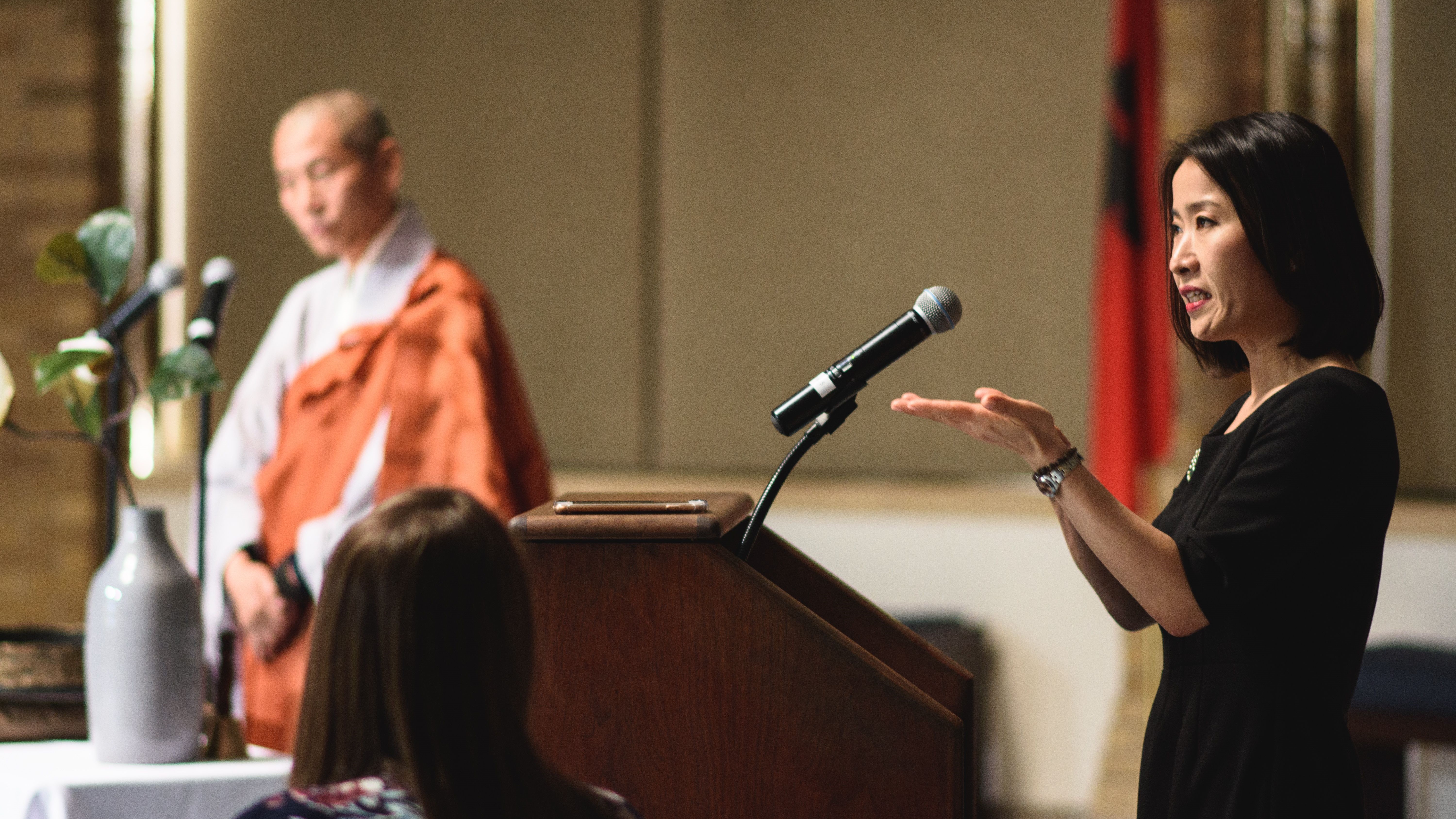Faculty Spotlight: Hyojung Cho, Ph.D.
Associate Professor – Heritage Management and Museum Sciences Program
Dr. Hyojung Cho, a native of South Korea, believes that the teaching and learning experience is more effective when there is collaboration between the professor and the students. Her goal is to not only prepare her students to succeed as professionals in their chosen fields, but also to share their knowledge through program development in the community. Cho is an associate professor with the Heritage Management and Museum Sciences program at Texas Tech University and a recipient of the 2019 President's Excellence in Teaching Award, a 2020 Provost Faculty Fellow, and a Fulbright U.S. Scholar, 2020-2021.
Tell us about yourself and what brought you to Texas Tech?
“Texas Tech offers many innovative academic programs, and I consider the Heritage and Museum Sciences (HMS) program to be one great example. It certainly fits well with my academic backgrounds: Ph.D. in Cultural Policy and Arts Administration, and M.A. in Museum Studies. My teaching and research interests are in heritage management, which is studying how the society recognizes the valuable parts of the past and tries to interpret, present, conserve, or even erase them for the benefit of contemporary society. Heritage management is still a new discipline, which offers many possibilities and areas for discovery. Museums are one of the most important institutions in heritage management, and my doctoral study in heritage policy was led by my graduate study in Museum Studies and work experiences in museums. In addition, the HMS program is housed in the Museum of Texas Tech University, which has allowed me to stay connected to museum practices and provides a wonderful platform for my community engagement programs. When I applied to be an assistant professor in the program, I truly felt that it was an ideal match, and my 12-years tenure at Texas Tech has proven that it was!”
What has been your favorite experience of your teaching career so far?
“The most challenging yet rewarding aspect of faculty responsibility is the relationship with the students. Their needs and questions have provided inspirations and motivations for me in all areas of my faculty duties. I am constantly learning about people and other cultures from them. One particular moment when I realized this was during the preparation for the President's Teaching Award submission. Reading the letters of support from current and graduated students was such a gratifying and humbling experience for me. Faculty responsibility in student service and community engagement is important more than ever. The spectrum of “teaching” is now very broad, not limited to activities in classrooms but includes working together from conference presentation to community service. Therefore, I believe building a positive relationship with students is important in supporting students' academic success and increases my faculty performance and job satisfaction.”

Talk about the program and goals of the Master of Heritage and Museum Sciences program at Texas Tech.
“As museums have constantly progressed and transformed with the changing society, the HMS curriculum has also been updated to teach the knowledge and skillsets that are in demand out in the fields. The museum science program is one of the oldest programs of its kind in the nation, and it has also evolved. Embracing heritage management, the program now offers a concentration in either Museum Science or Heritage Management. However, the mission of the program has remained the same to prepare students to become socially responsible professionals who can improve the fields of museum and heritage management and contribute to society through their work. To achieve this lofty, yet important goal, all courses stress accountability and ethical responsibility in every aspect of museum practice and emphasizes on critical, and more importantly, creative thinking. The program is designed to provide students with both academic and work experiences. Our students have indeed been an important workforce in the Museum of Texas Tech University, the Lubbock Lake National Historic Landmark, and the National Science Research Laboratory. We are proud that our students are active in presenting and frequently recognized in the museum conferences, such as the Annual Conference of Mountain-Plains Museum Association. Our students have been active in the professional development and community service through the Museum and Heritage Student Organization. One of their notable programs is Hack the Museum, which helps to welcome new students and kick off a new academic year.”
As you think about your accomplishments, what are you most proud of?
“The ultimate goal of my teaching is to prepare students not only to possess the necessary knowledge, but also to have the ability to continue to improve as professionals who can expand the fields of museum and heritage management and to share with their communities. In fact, that is also the goal I have set for myself, and I have worked towards it with wonderful partners. One example is the Annual International Arts and Culture Symposium that the Museum of Texas Tech University and Sowoon Arts and Heritage, a local nonprofit organization, collaboratively hosted since 2012. As a seven-time Texas Humanities grant and six-time Center for Global Understanding grant recipient, the symposium has sought to promote cultural diversity and foster the study of diverse cultural traditions and artistic creativity in a contemporary social context. I deeply appreciate the Office of International Affairs for the collaborative effort in providing the diverse outreach programs that accompanied the symposium and am looking forward to the opportunities to work together more in the future.”

What advice would you offer to an international student wanting to study in the United States?
“I would like to encourage international students to bring their educational and cultural background to their study and life in the U.S. This does not mean that you should be fixated by them, rather, that those experiences can assist them in opening their eyes and acquire new knowledge and culture, serving as the foundation for their success and creativity. I, myself, came to the U.S. as an international student, and looking back, my cultural and academic backgrounds built in my home country has enabled me to assess things from a different perspective and be critical in pursuing my goals in the U.S. At the same time, it has allowed for me to re-assess and rediscover my Korean culture and society.
In addition, I hope that international students realize how much they are welcomed and valued by Texas Tech. International relations are always in motion, and the policies related to international students can be at times difficult. However, educational exchange has always been the most important area in the U.S. cultural diplomacy, and the U.S. higher education has further advanced with the contributions by international students and scholars. From a faculty perspective, their different perspectives and hard work in classrooms are appreciated and help to enrich cultural diversity in the campus and the community. My advice is: Don't be outsiders in the Texas Tech. Take ownership and be active in the Tech community and thrive in your study and life in the U.S.”
International Affairs
-
Address
601 Indiana Avenue, Lubbock, TX 79409-5004 -
Phone
806.742.3667 -
Email
oia.reception@ttu.edu
